
Crisis Response Fund
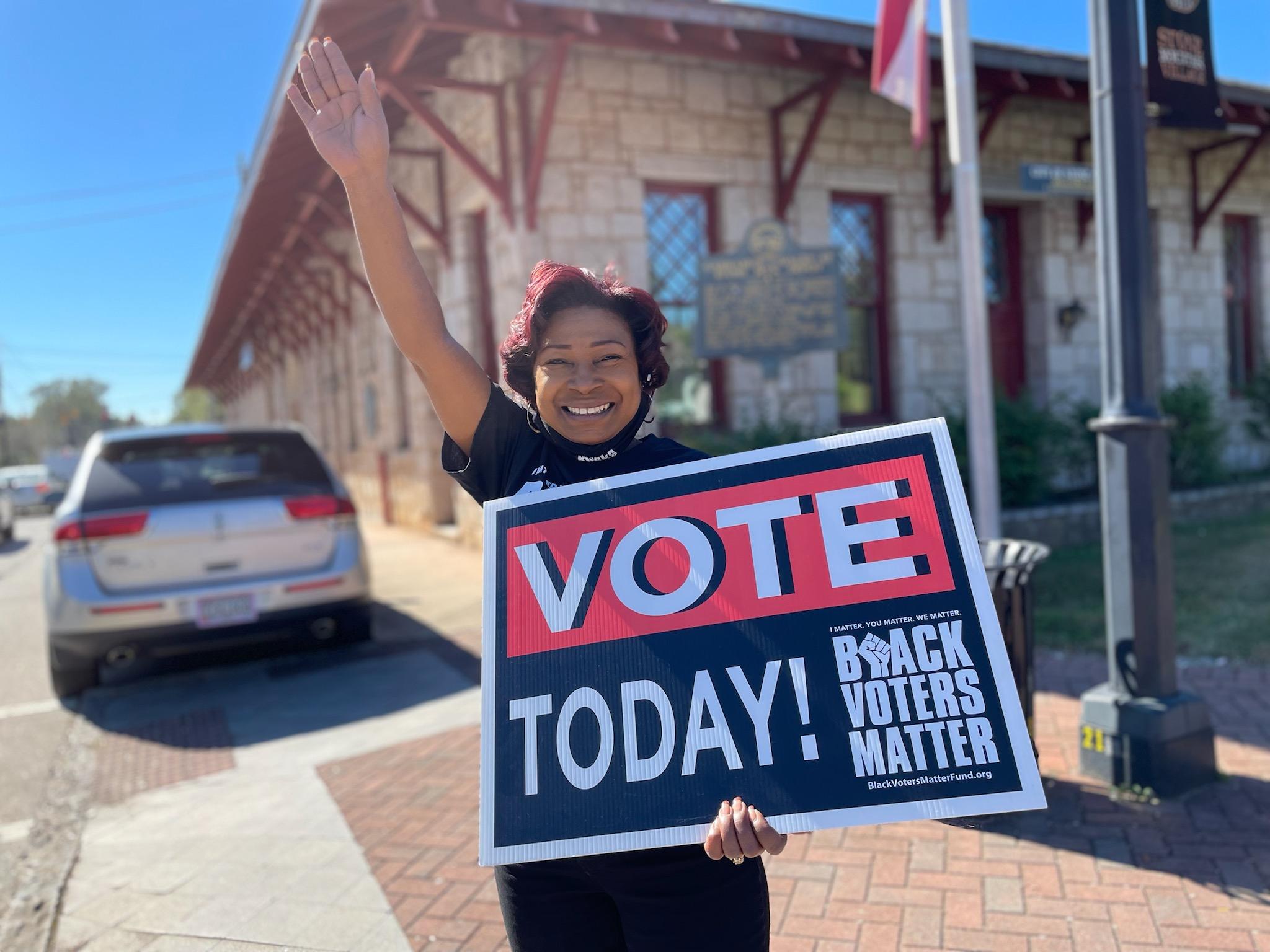
Between the 2016 election and 2020, the Asian-American Pacific Islander community saw a 56 percent vote gain in Georgia. Phi Nguyen, executive director of Asian Americans Advancing Justice-Atlanta (AAAJA), says the result is from “a decade of on-the-ground organizing that’s actually multi-ethnic and multiracial among community groups like ours.”
It was not only Asian communities, but Black and Latino voters who showed tremendous gains in Georgia. “At the end of the day, with communities of color and any marginalized community,” says Nguyen, “some of the root causes of our specific struggles are the same. If we can recognize that we have a shared thing that we’re combating and have a shared vision for our communities, then we need to work together to really build power and be able to build the world that we want to see for all communities that’s inclusive and equitable across our multiple identities.”
AAAJA is a grantee of the Tides Healthy Democracy Fund, a pooled grant-making fund. In 2022, the fund focused on building infrastructure to increase voter turnout and protect the voting rights of communities of color and young people through grassroots organizing, voter registration, and turnout.
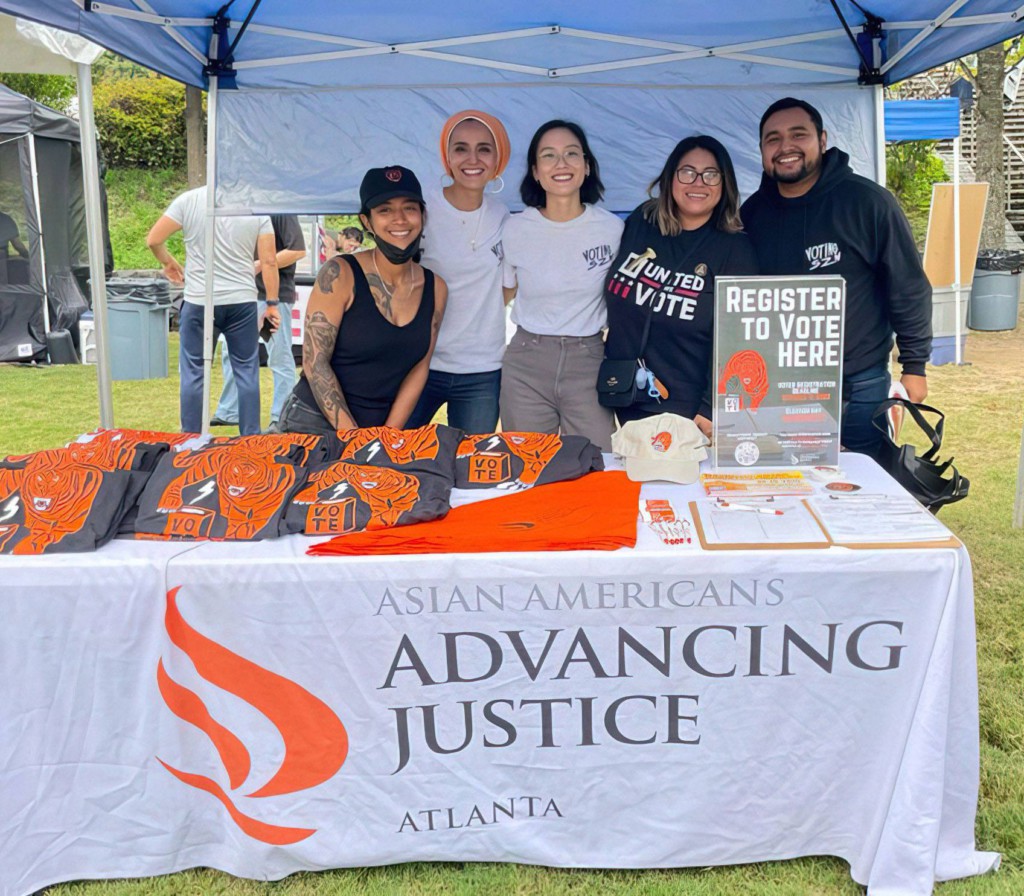
AAAJ runs a Georgia Leadership Lab which aims to build up immigrant leaders to be more effective advocates. (Photo from AAAJ – Atlanta)
For AAAJA, this includes engaging in what Nguyen calls “deep canvassing” to talk to people about the issues that matter to them and how they can engage in civic life to pursue those issues, as well as building up community leaders. The grassroots organization conducts an organizer academy to develop young leaders in BIPOC communities and runs a “Georgia Leadership Lab,” which Nguyen says “is aimed at building up immigrant leaders so that they can be more effective advocates, and it also creates a support system for advocates, because they’re going through a seven-month program together and building lasting relationships.”
The Black Voters Matter Fund (BVM), a grantee of the Healthy Democracy Fund, was also instrumental in the gains voters of color made in Georgia and across the South. In 2016, Cliff Albright and LaTosha Brown founded the organization. In just six years, the small grassroots organization developed into a multi-state network facilitating voter registration, advocacy, and organizing, all with the goal of harnessing and directing the power of Black communities to determine their destiny. In 2020, BVM contacted more than 50 million people by text message, phone, or in person at their home — a remarkable 64 percent of whom turned out to vote. But on the heels of those impressive results, voter suppression efforts — both legal and unsanctioned — have intensified.
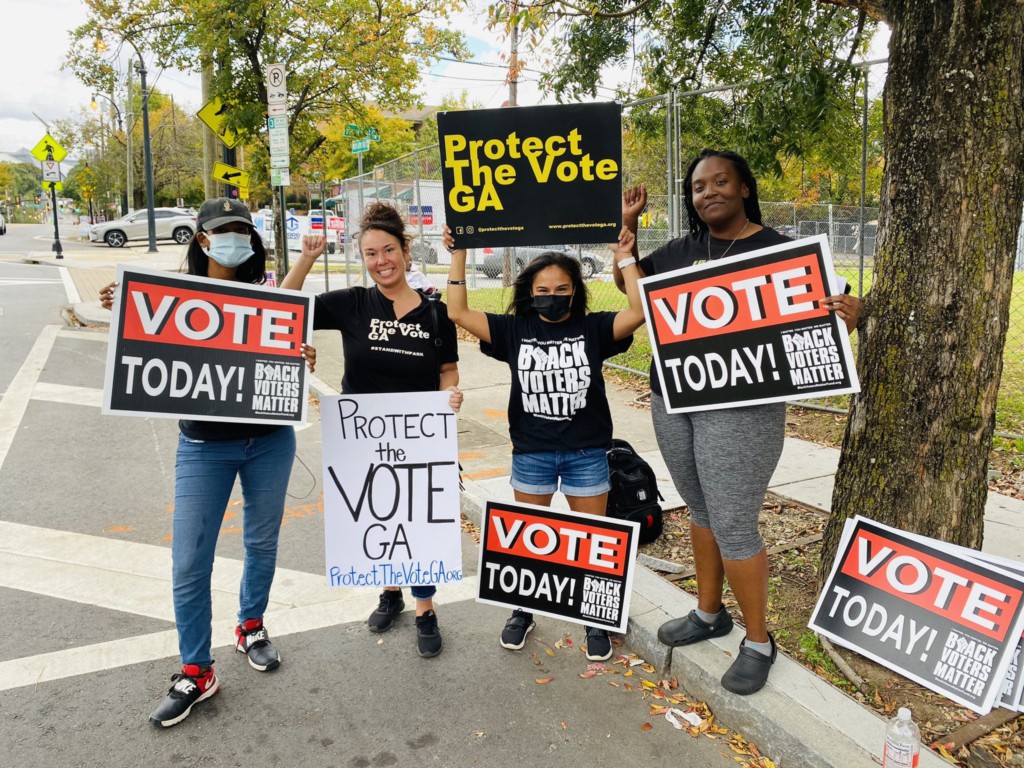
“Even when you do not win a referendum, you can change the discussion, you can change how many people are engaged in that discussion.” (Photo from BVM)
”We’ve had to double down on the amount of education and awareness raising that we’re doing; informing people about what the changes are in some of these voter registration laws,” says Albright. Crucially, BVM took a Freedom Ride for Voting Rights tour across the South in 2021 to honor the 1960s rides and engage Black voters as they face the numerous proposals to restrict voting that are pending in state legislatures across the country.
But the BVM Fund doesn’t just measure success by the number of voters turning out for one election, or a specific win on a ballot, says Albright. They want to build sustained civic participants in Black communities. In fact, one of their greatest successes of 2021 began with a loss, Albright says.
BVM supported a group in San Antonio that wanted to organize around police accountability. They helped the group in a variety of ways through education, training, and capacity support. The group was able to gather the signatures they needed to get an initiative they wanted on the ballot. They lost that ballot initiative, but Albright counts it as one of BVM’s great successes because engagement in the democratic process took root.
“They didn’t win initially, but even when you do not win a referendum, you can change the discussion, you can change how many people are engaged in that discussion. And once they’re engaged in that discussion, they’re more likely to be engaged in a whole variety of other issues that are being discussed in that city,” says Albright. “What wound up happening is that although the initiative didn’t pass, it changed the discussion of the City Council elections that were taking place. They actually were able to get the first Black and gay City Council person elected who was very much in favor of police reform.”
Engaging people in the mechanisms of democracy is also an essential goal for the Ohio Organizing Collaborative (OOC), an HDF grantee. Formed in 2007, the OOC’s mission is to unite the interests of diverse groups of Ohioans with common interests to win on the issues that matter most around their material conditions. For years, the OOC has been building coalitions across local and state groups with common interests to align their fight.
“We are the backbone supporting that organizing, so the only thing they have to do is organize people and bring them in,” says OOC’s co-executive director, Prentiss Haney. “They do what democracy is meant to do — make choices: What are the things we could do together? Where do we have alignment? Create strategy; cut deals with one another about the most important fights for that particular season.”
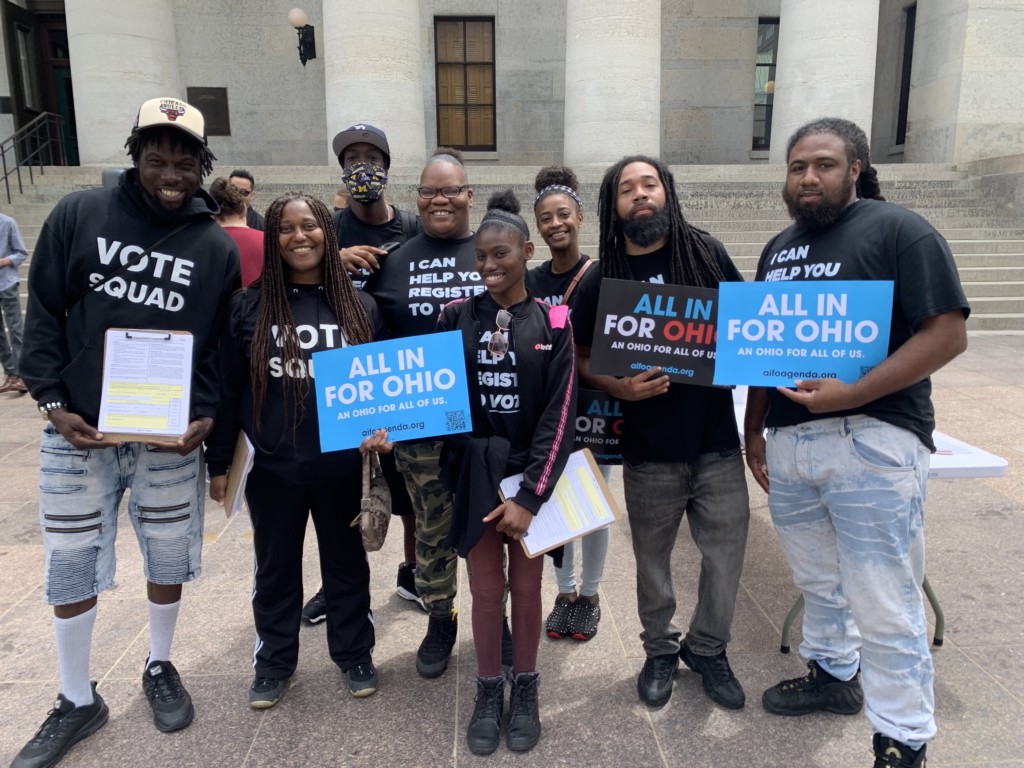
“If people don’t believe that multi-racial solidarity can happen, then it doesn’t matter how much you build, because people have to believe in it.” (Photo from OOC)
Over its 15 years of existence, the OOC has helped build or expand core groups — all led by their community members. Among them: the Ohio Student Association; Building Freedom, led by formerly incarcerated Ohioans; the Amos Project, made up of faith-based organizations; and the CEO project, which is led by women of color who are caring for children and the elderly.
“We know that we live in an environment that uses racial dog whistles to try to undermine Black leadership,” says Haney. “We use tools like the race-class narrative to help create multi-racial solidarity, so that both can actually start to hear the ideas we’re moving, because if people don’t believe that multi-racial solidarity can happen, then it doesn’t matter how much you build, because people have to believe in it.”
Haney credits OOC’s successes to these strategies. Recently, the OOC was able to bring together diverse organizations to get both a People’s Budget and a bipartisan Fair School Funding Plan passed, as well as racking up incremental wins in an anti-gerrymandering lawsuit. And in 2020, OOC was behind one of the most successful voter registration programs in the country, registering more than a half-million voters in 2020, 77 percent of whom were Black.
While they are focused on building leadership within the state, like all of the HDF grantees, Haney stresses how important it is for OOC to have the mechanisms to collaborate with other organizations developing local leaders both intra-state and across state lines, a process the Tides network facilitates. As Haney says, interconnected local power is key, because “if you can control the states, then you can move a nation.”

Crisis Response Fund
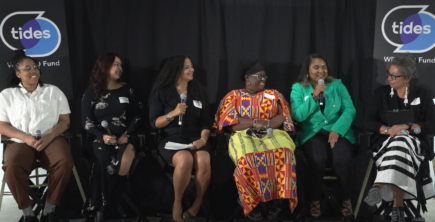
WE LEAD
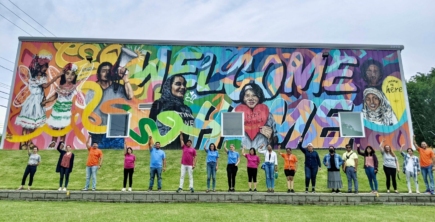
Equality & Human Rights

Read the stories and hear the voices of social change leaders fighting for justice.